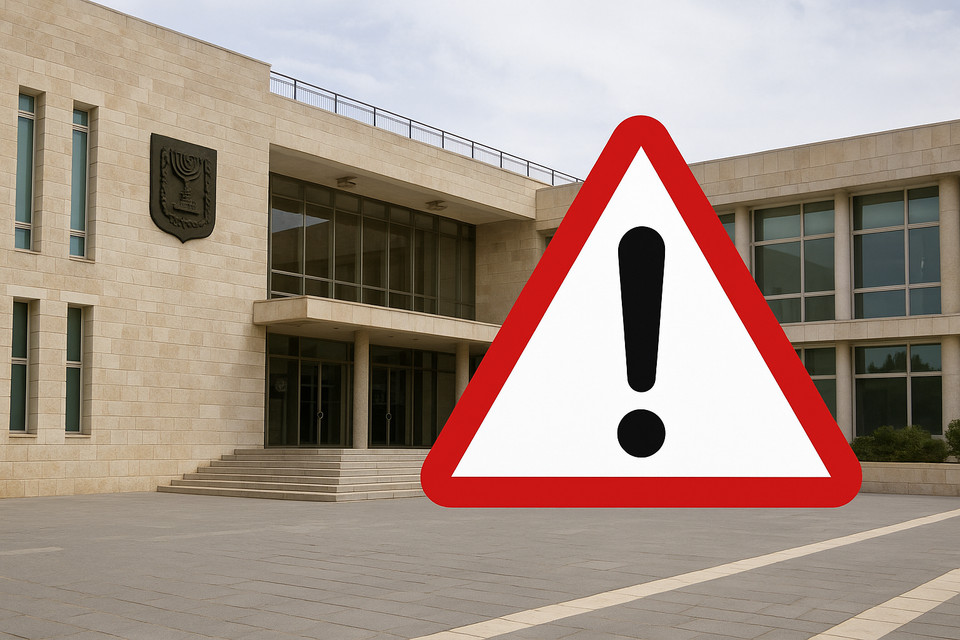What is the Charedi view of the Israeli Supreme Court?

The Charedi world sees the Israeli Supreme Court not just as a legal institution—but as a spiritual battleground. While many Jews view the court as the highest expression of democracy and justice, Charedim view it as a system built on values foreign to the Torah, often in direct contradiction to it.
To be clear: This is not personal. We don’t hate judges. We don’t hate justice. We love justice—it’s one of the pillars of the world (Avos 1:2). But true justice can only come from the Torah, not from man-made systems that replace it.
What Is the Halachic View on Going to Secular Court?
Halacha is explicit: a Jew is forbidden to bring another Jew to a secular court—especially one that does not judge according to Torah.
“Anyone who brings his case before non-Jewish judges… is a rasha, and it is as if he blasphemes and raises his hand against the Torah of Moshe Rabbeinu.” — Shulchan Aruch, Choshen Mishpat 26:1
Even if the secular court rules exactly the same way the Torah would, it is still forbidden to turn to them instead of a Beis Din (halachic court).
So imagine the chutzpah: Instead of submitting to Hashem’s system, the State of Israel created a court that is explicitly secular, and often rules against Torah values.
How the Israeli Court System Functions
The Israeli legal system is based on British common law, not halacha. The Supreme Court acts as the final word in interpreting laws—but more dangerously, it often functions as an activist court, striking down laws passed by the Knesset and reshaping Israeli society according to liberal, Western values.
- It has legalized chillul Shabbos in public spheres.
- It has forced religious institutions to include secular content.
- It has protected toeivah parades and anti-Torah “rights.”
- It has struck down policies that try to preserve the Jewish character of the state.
This is not theoretical. These rulings affect our lives, our yeshivas, our children, and the kedushah of Eretz Yisrael.
The Chutzpah of Replacing Hashem’s Law
To Charedim, the most outrageous part is not just the rulings—but the arrogance.
That secular judges—who do not keep Torah, do not believe in halacha, and in many cases do not live as Jews should—sit in judgment over the Torah world, its yeshivas, its families, its values, and think they know better.
“For it is not by your wisdom or understanding that you inherit the land…” — Devarim 9:5
The Chazon Ish zt”l said:
“Secular law, even when it appears logical, uproots the soul of the Torah. Because it claims justice while cutting the Torah out of the picture.” — Kovetz Igros, Vol. 1
Gedolim Who Spoke Out
- Rav Elazar Menachem Man Shach zt”l: “A Supreme Court that judges according to its own values and not the Torah is not a source of justice—it is a source of chilul Hashem.”
- Rav Yosef Shalom Elyashiv zt”l was known to say: “They sit in judgment over the Ribbono Shel Olam’s Torah and reject it with their pens.”
- The Steipler Gaon zt”l said: “There can be no partnership between Torah and those who fight against it in court.”
What Charedim Do Instead
When disputes arise—monetary, marital, communal—Charedim go to Beis Din, not to secular courts. A Torah court is not just about issuing rulings—it’s about connecting the conflict to a higher truth.
If the other party refuses to go to Beis Din, only then—under certain conditions and with permission from a Rav—may one turn to secular court, and only to protect against injustice.
What Would a Torah Court Look Like?
In a true Torah society:
- Judges are talmidei chachamim, not political appointees.
- Laws are from Sinai, not from Western liberalism.
- Justice is not only about law—it is about emes, rachamim, and yiras Shamayim.
As the Rambam says:
“The Sanhedrin sits in the Lishkas HaGazis… and judges according to the Torah that was given to Moshe Rabbeinu.” — Hilchos Sanhedrin 1:3
That is our vision of a just system.
In Summary
The Charedi view of the Israeli Supreme Court is one of pain—not political hatred, but spiritual grief. The court represents a system that removes Hashem from law, from values, from the very definition of justice.
To Charedim, justice without Hashem is not justice at all.
We await a time when Torah will again be the guiding light of law in Eretz Yisrael—not by force, not through political domination, but through the return of hearts to the truth of Hashem’s will.
Sources & Footnotes
- Shulchan Aruch, Choshen Mishpat 26:1 – Prohibition against turning to secular courts.
- Rambam, Hilchos Sanhedrin 1:3 – True Torah courts.
- Devarim 9:5 – Warning against attributing wisdom to our own legal systems.
- Kovetz Igros Chazon Ish, Vol. 1 – On secular justice uprooting Torah.
- Michtavim U’Maamarim, Rav Shach – Condemning the Supreme Court as anti-Torah.
- Pe’er HaDor, Rav Elyashiv – On the spiritual danger of secular legal authority.
- Karyana D’Iggarta, Steipler – On not partnering with anti-Torah institutions.
